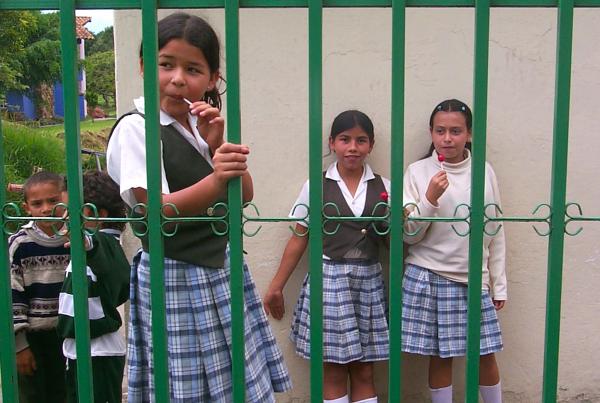As I walked out of the airport at 6am, I was met by the most beautiful sky I’ve seen. It was a pale rainbow, moving from pink to blue to yellow. The kind of sky that I’ve only ever seen in Egypt. The light hits differently. It was quiet and serene. No one around aside from taxi drivers and a few arrivals. There was a new Starbucks kiosk just outside and with the brazenness I always have first on arrival, I marched up to them to order a coffee: "Sabah il Kheir, mumkin cabbicino."
They laughed and asked me a few more questions to ascertain how much Arabic I could really speak. I couldn’t stop chatting to everyone I walked past to the taxi. I was relieved.
It was a hard transition back to Cairo this time.
Normally, it’d be fuelled by pure excitement, but this was the first time I felt guilty for leaving my family behind. I’d been in the UK for such a long period that I’d begun to get used to being home and had started rebuilding my life there. I wasn’t sure I wanted to go back. When you’ve lived abroad, it takes at least a year to adjust back to reality.
But as I sat in that taxi, I couldn’t stop smiling. Smiling at the huge billboards advertising yoghurt, the cars beginning to build, the familiar bridges. I was smiling from ear-to-ear. And when I went for my first facial (one of my favourite things is the beauty treatments), the beautician said: "You are happy, I see it." And yes, I was and I am. Even one of my close friends back home said that I sounded different. Why is that?
Today I saw a friend who said: “Part of you belongs here.” I really have lost my heart to Egypt.
But I was apprehensive to return to my Cairo apartment. You don’t know what to expect. Will it be as I left it? I knew one thing for sure; it would be really dirty. The desert dust is hard to avoid and after five months, I knew I’d have to deep clean before I did anything else. But as I suspected there was something else…
The lock on the front door was broken.
Someone had really taken time to smash the area around the lock and get in. A chisel and a crowbar perhaps? Nothing had been taken because it was largely just clothes. I know it wasn’t burglars. I have my theory and interestingly my dad had the same thought. But equally, I’ve had too many weird experiences over the last couple of years to sit around and worry about it.
One of the first events I attended was the NileTESOL teaching conference.
I was stunned when I turned up. It was held at the American University campus in New Cairo, which is huge and beautifully built, drawing on local architectural styles. And there were 4,000 attendees. I was expecting a few hundred. It was next to impossible to get into any talks because there were so many people.
On arrival, I was lost and approached a girl for directions. She helped me and as I turned away, she said, “Are you Lucy?” I was stunned. Turns out, she works for the British Council and said that she’s "heard a lot about a teacher called Lucy.”
Choice—albeit difficult when there is too much—is a privilege.
In English, the reply to that is: “All good, I hope?”
I’m not embarrassed to confess that it made me miss that job. I really loved the students and I learnt so much during those two years. I am genuinely grateful I came here as a teacher. You see and learn things about the culture that I don’t think you can learn if you turn up as a belly dancer (the lessons there are very different). They operate outside of convention. I’m grateful to have a life and circle of friends outside of that world. Maybe in my 30s, I’ve finally learnt balance.
During a session on professional development, we could write on a website that then shares the results onscreen. The question we were asked was: "Why did you become an English teacher?"
Why did I become an English teacher?
The easy answer is: to travel. But that’s not actually it. The joke I ask Brits is: What went wrong in your life that led you to retraining as a teacher and running away?
What struck me, though, is how many people said (in a room of 98 percent Egyptians) it was the only option. They didn’t have a choice after they graduated. Choice—albeit difficult sometimes when there is too much—is a privilege. That is why I believe, if you have choice, you should use it and not take it for granted.
So, what do I plan to do for my second week? I’ve started going to the ahwa (café) to catch up with friends. In Egyptian culture many people, particularly men, spend long evenings drinking shay tea or ahwa coffee and watching the match. I felt proud because I let myself speak Arabic a lot with my friend, who is always supportive and never laughs when I get it wrong. I finally felt: I can do this.
Add this article to your reading list




